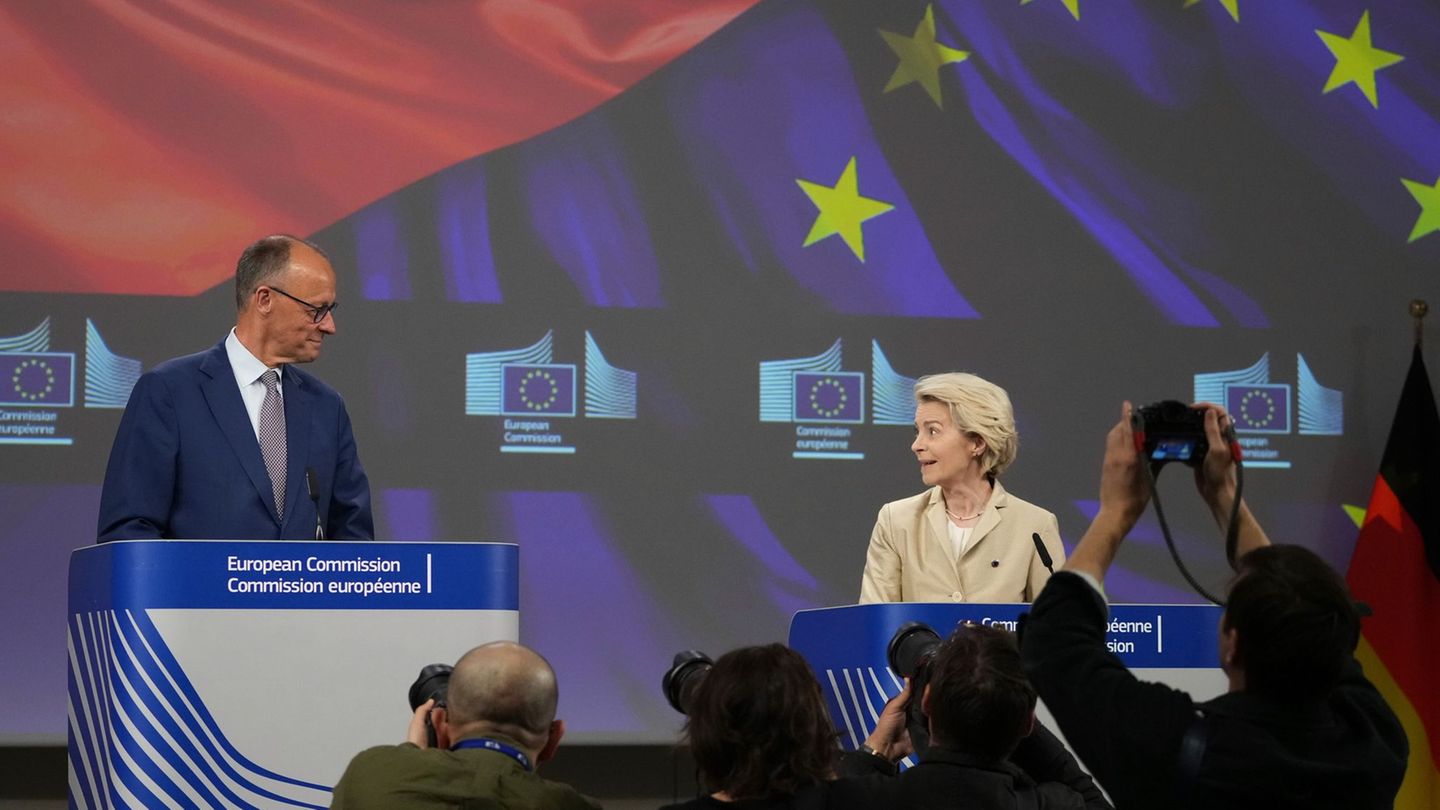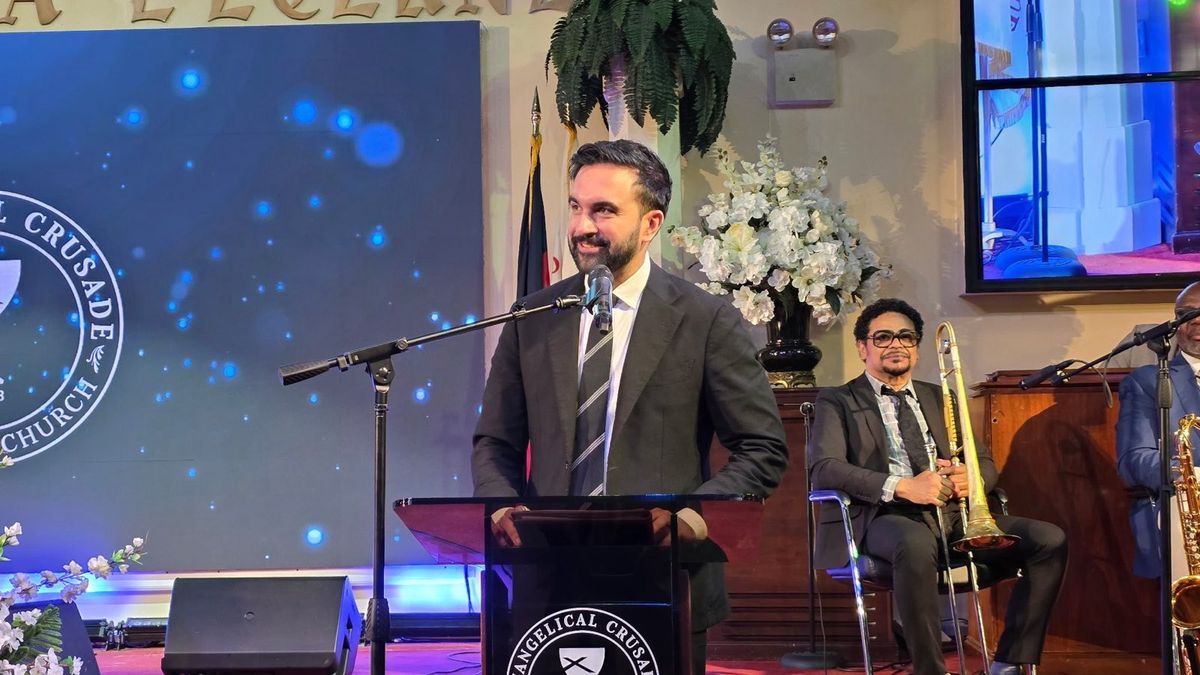EU visit to the EU
Merz in Brussels: border controls no German solo
Copy the current link
Add to the memorial list
Germany exacerbates its border controls – and is criticized by the EU neighbor. The new German Chancellor makes one thing clear when he visited Brussels.
The new Federal Chancellor Friedrich Merz (CDU) defended himself for the increased controls and rejections at German borders when he visited Brussels. The rejection would be in accordance with European law, he said at a joint press conference with EU Council President António Costa. “Our European neighbors are also fully informed about this. There is no German single -handedly here.” The first neighboring countries in Germany had previously expressed criticism of Berlin.
EU Commission President Ursula von der Leyen said at a joint press conference: “Member States can introduce border controls at their internal borders.” However, this must be done within the scope of the applicable EU regulations and be limited in time. In addition, the controls would have to take place in close coordination with the Commission and the neighboring countries.
The new Federal Government wants to take advantage of undesirable migration with additional border controls and rejections of asylum seekers. According to an instruction by the new Federal Minister of the Interior Alexander Dobrindt (CSU), more stricter controls run on the German borders in the middle of the week.
Merz insists on Dublin Ordinance
Merz refers to the so-called Dublin Ordinance, which is currently regulating the right of residence in the EU. According to this, migrants in the land of initiative would have to apply for asylum, said Merz. “In this respect, the application for asylum procedure, regardless of whether it is possible according to European or German asylum law, is usually not possible at a German, European internal limit.” With the exception of Switzerland, Germany does not have a EU external border. Switzerland is a member of the Schengen area in which passport checks are exposed.
At the same time, the Chancellor makes it clear that the German measures should never have a negative impact on the European internal market. “I would also like to say this to all heads of the state and region in the European Union, who may be concerned about restrictions these days. We want to avoid restrictions under all circumstances,” said the CDU politician.
From the perspective of critics, rejections are probably not compatible with EU law and also a danger to the actually border control-free EU internal market. According to the EU provisions of the Dublin Ordinance, the federal police may not simply reject asylum seekers at the border. Rather, the German authorities have to start a complicated and often poorly functioning procedure in order to transfer them to the responsible EU state-that is, where they entered the EU.
However, there is a kind of emergency clause. According to this, rejections at the borders are permitted for the nation states if this is necessary for “maintaining public order and protecting internal security”.
However, there was also approval for the planned change of course in German asylum policy. Austria, for example, welcomed Germany to the struggle against the tractor mafia and illegal migration. At the same time, the Interior Ministry in Vienna insisted on compliance with compliance.
Merz meets three EU top representatives
Merz traveled to Brussels after visits to Brussels and Warsaw to meet the three top representatives of the EU with Commission President Ursula von der Leyen, President of Council President António Costa and Parliament President Roberta Metsola. A meeting with NATO general secretary Mark Rutte is also on the program. When signing the coalition agreement between the Union and the SPD, the CDU boss had announced that it would be able to hear Germany’s “voice in Europe and in the world” again.
dpa
Source: Stern
I have been working in the news industry for over 6 years, first as a reporter and now as an editor. I have covered politics extensively, and my work has appeared in major newspapers and online news outlets around the world. In addition to my writing, I also contribute regularly to 24 Hours World.




